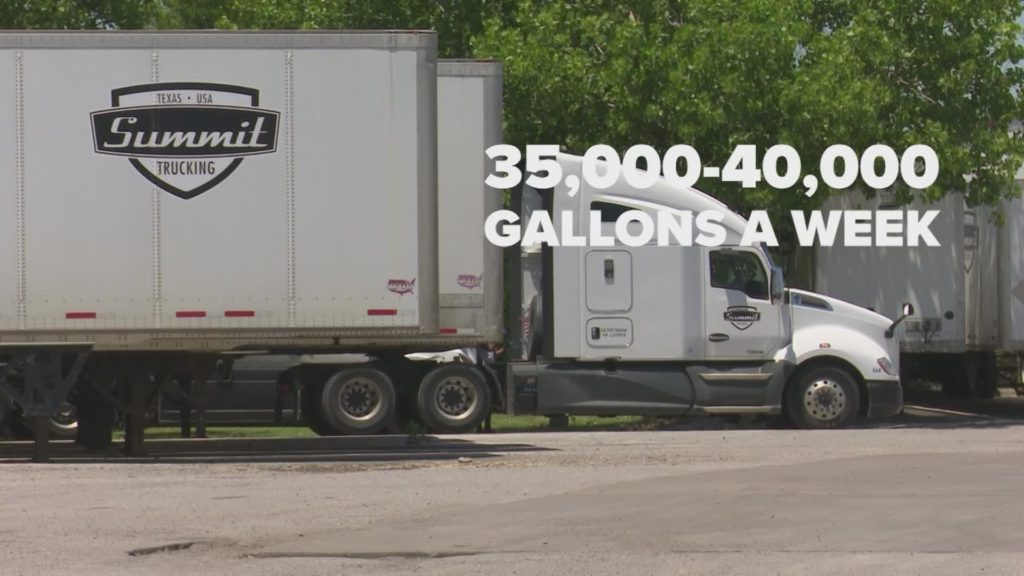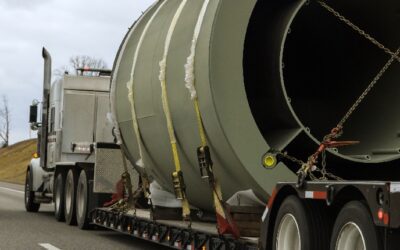High Fuel Prices & Heavy Haul
The heavy haul transportation industry plays a crucial role in the movement of goods and materials in the United States, and it is heavily dependent on the cost of fuel. As such, high fuel prices can have a significant impact on the industry, both in terms of the businesses that operate within it and the consumers who rely on it.
How High Fuel Prices Impact on Businesses
High gas prices can have a significant impact on the heavy haul transportation industry. The cost of fuel is one of the largest expenses for heavy haul trucking companies, and when gas prices rise, it can increase the cost of doing business and make it more difficult for companies to remain profitable. This can lead to higher prices for customers and potentially less demand for heavy haul transportation services. This can be a problem for small and medium-size companies, where even small increases in fuel costs can be difficult to absorb.
Elevated fuel costs can also make it more expensive for heavy haul trucking companies to transport goods long distances, which can make it more difficult for them to compete with other forms of transportation such as rail or sea freight. This can also lead to higher prices for goods that are transported by heavy haul trucking companies, which may be passed on to the consumers. This can be a problem for many businesses, as it can make it more expensive to transport goods, which can lead to higher prices for consumers and lower demand for products.
In addition, high gas prices may also force the heavy haul trucking companies to invest in more fuel-efficient vehicles and technologies to reduce fuel costs. This can be a significant investment for many companies, and it can be difficult to justify the cost if the prices of fuel are expected to be volatile in the future. This can be a significant problem for many businesses, as it can make it difficult to plan for the future and can lead to uncertainty in the industry.
Increased Fuel Costs Impact on Consumers
Elevated fuel prices can have a significant impact on consumers as well. The cost of fuel is one of the largest expenses for most households, and when gas prices rise, it can make it more difficult for people to afford to drive their personal vehicles. This can lead to less driving and less demand for gasoline. This can be a problem for many people, as it can make it more difficult to get to work, school, and other important destinations.
High gas prices can also lead to higher prices for goods that are transported by heavy haul trucking companies, which may be passed on to the consumers. This can be a problem for many people, as it can make it more expensive to purchase goods and services. This can be a problem for low-income households, as they may not be able to afford the higher prices.
In addition, high gas prices may also force the heavy haul trucking companies to invest in more fuel-efficient vehicles and technologies to reduce fuel costs. This can be a problem for many people, as it can make it more difficult for them to find jobs in the heavy haul transportation industry, as companies may be investing in more fuel-efficient vehicles and technologies to reduce fuel costs.
Overall, gas prices can have a significant impact on the heavy haul transportation industry and the people who rely on it. High gas prices can make it more expensive for heavy haul trucking companies to operate, which can lead to higher prices for customers and potentially less demand for heavy haul transportation services. High gas prices can also make it more difficult for heavy haul trucking companies to compete with other forms of transportation such as rail or sea freight. Increased gasoline expenses can also lead to higher prices for goods that are transported by heavy haul trucking companies, which may be passed on to the consumers.
Adapting to Fluctuations in Gas Prices: The Role of 3PL Companies
Fluctuating crude oil prices pose a constant challenge for logistics businesses, requiring them to adapt their operations to maintain profitability and avoid future setbacks. The impact on the logistics industry and the rise in transportation costs have led some companies to increase their stockpiles, reducing the number of shipments and ultimately, their transit costs. While this can lead to cost savings for shippers and receivers, it also increases the number of empty miles traveled by carriers, which can ultimately decrease the profitability of logistics businesses. To mitigate these effects, logistics companies must find ways to optimize routes and increase the frequency of shipments.
Fuel Prices and Their Impact on Logistics: Rapid Changes and Challenges
Fuel costs are a major concern for logistics companies, as they can fluctuate rapidly and have a significant impact on profits. Logistics businesses typically calculate gasoline surcharges based on the previous week’s fuel costs, but there can be a lag when fuel prices increase significantly. This delay can greatly affect the earnings of trucking firms. However, when fuel prices decrease, the opposite occurs, and profits are increased. But this situation happens less often.
Fuel prices are a persistent issue in the logistics industry, making competition among businesses fierce as they strive to maintain low prices while still earning a profit. Since the turn of the century, gasoline prices have risen dramatically, causing difficulties for freight management companies. To combat these higher expenses, some firms are implementing FPO solutions, such as cost-saving measures in invoicing.




